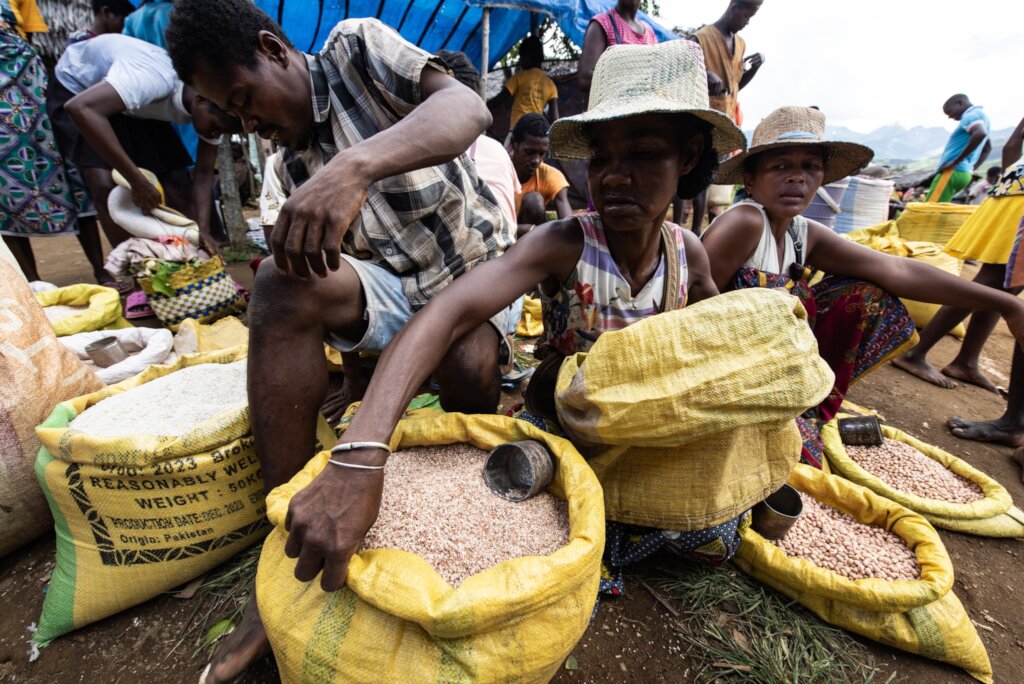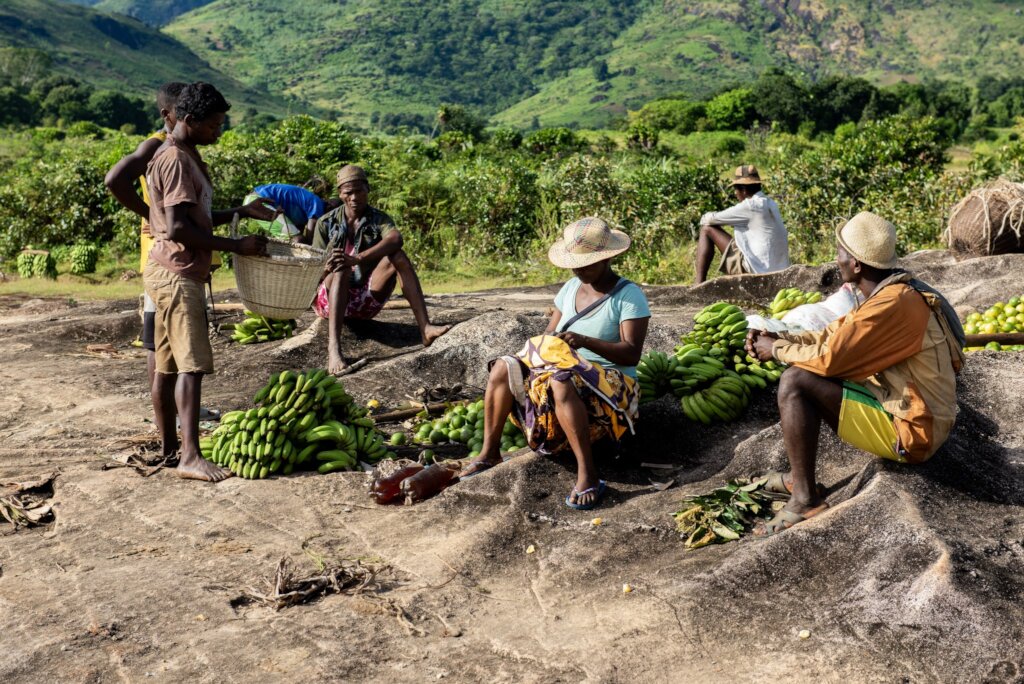By Alex Wade | Programmes and Office Assistant
In 2021, following Madagascar’s most severe drought since 1981, SEED began the Emergency Food Distribution (EFD) initiative to relieve the crisis in food availability in the Anosy region, made worse by the COVID pandemic, crop pests, and failed harvests. In coordination with the National Ministry of Health and the Regional Nutrition Cluster, the first two years of the response supported the recovery of 4,134 children aged 6-58 months with moderate acute malnutrition (MAM) and 431 children with severe acute malnutrition (SAM), with a further 27,334 family members supported with Ready-to-Use Supplementary Food (RUSF) packs of rice, beans and oil.
2024 has continued to bring challenges due to ongoing extreme weather patterns, crop pests, and rising global food prices. The Integrated Food Security Phase Classification reported that 1.31 million people in Madagascar’s southern region faced severe food insecurity (IPC 3-5) between October 2023 and January 2024. As of February 2024, SEED had identified 1,112 children with MAM and 131 with SAM in the areas covered by the EFD programme. Alongside immediate supported treatment of these malnourished children, RUSF has been distributed to areas classed as the most food insecure (IPC 2+). SEED is providing micronutrient supplements to children aged 6-24 months who do not have MAM or SAM to prevent future malnutrition.
Health service capacity continues to expand through the training of community health workers and primary caregivers to prevent, identify and treat child malnutrition. In collaboration with national agencies, a further 4 community health centres have been established since 2023, with the total new centres now numbering 22. Heads of community healthcare centres have completed training on maternal and child nutrition and associated health conditions, preparing them to go on to train further community healthcare workers.
SEED Madagascar, with the support of generous partners and donations, has further been working to establish recovery and resilience programmes to strengthen communities’ preparedness for shocks to food availability in the future. However, whilst there is work on building long-term resilience, there remains urgent current need. The generosity of donors in supporting the response so far has been invaluable.
By Betty Gisore | Grants and Administrative Assistant
By Betty Gisore | Project Leader
Project reports on GlobalGiving are posted directly to globalgiving.org by Project Leaders as they are completed, generally every 3-4 months. To protect the integrity of these documents, GlobalGiving does not alter them; therefore you may find some language or formatting issues.
If you donate to this project or have donated to this project, you can receive an email when this project posts a report. You can also subscribe for reports without donating.
Support this important cause by creating a personalized fundraising page.
Start a Fundraiser
